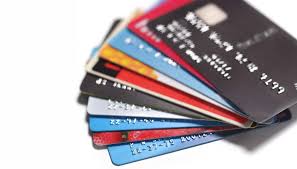 Normally, when we think of credit cards, we think of convenience. While we might think that they can lead to debt if not used responsibly, many of us mostly see them as a financial tool.
Normally, when we think of credit cards, we think of convenience. While we might think that they can lead to debt if not used responsibly, many of us mostly see them as a financial tool.
With credit cards, it’s possible to earn rewards, as well as easily make payments without the need to carry cash around. But are credit cards too convenient? And could their use actually cause more damage than good?
Credit Cards Foster Impatience
Credit cards make it easier to receive instant gratification. Indeed, as a society we are becoming increasingly reluctant to wait for the things we want because a credit card makes it easy to get something now. Studies have long shown that consumers prefer instant gratification to waiting, and there are even indications that the most impatient among us have lower credit scores.
The more you use your credit card, the likelier you are to become impatient when you have to wait for something — whether it’s a purchase or whether it’s waiting in line at the DMV.
The Way You Spend with Credit Cards Can Make You Unhappy
On top of all of this, the way you spend with credit cards could be causing problems. One of the ways that money can buy happiness is when you spend it on others. However, many of us don’t use our credit cards to spend on others. Instead, credit card purchases are often made for convenience and instant gratification. As a result, you can end up in debt, paying high interest rates, for something that loses its charm within a few months. Almost all of the ways that studies say spending can make you happy are thwarted by the way we generally use credit cards.
The Wealth Gap is Growing Because of Credit Cards
Not only can credit cards mess up your life as an individual, but the widespread use of credit cards also contributes to the growing wealth gap. The middle class seems to be shrinking, and studies indicate that part of the problem is that credit cards allow low income and middle class families to spend more than they earn quite easily, creating a situation where they are downwardly mobile in terms of wealth.
Credit Cards Contribute to Unhealthy Behaviours
Believe it or not, but credit card use might be making you unhealthy. Think about whether or not you are eating healthy meals. If you’re not, and if your waistline is starting to show it, part of the problem could be credit cards. A recent study found that those who planned to pay with credit filled up their shopping carts with more unhealthy foods than those who planned to pay with cash. Using credit cards weakens impulse control, and that can lead to poor purchasing choices.
You Spend More with Plastic
You are willing to spend more when you use a credit card. A study published in 2008 indicates that consumers are willing to spend more when they used credit, as opposed to use cash. Using a credit card puts off some of the “pain” associated with using cash. Cash creates a barrier to spending. Additionally, a survey by SimplePayday quantified how much more consumers are willing to spend when they swipe the card. The damage? You are willing to spend 12% to 18% more with a credit card. Purchases are bigger, and you are willing to pay a higher price without negotiation when you are using credit.
But if the math is the same, why should it matter which method of payment you use?
To begin with, the process of spending via credit card isn’t as transparent as paying with cash. It hurts more to give up cash rather than just swipe a card because you actually have to count out and hand over the cash physically and be confronted with the sight of your now smaller stack of real bills.
Product benefits vs. focus on cost
But that’s not the only reason that you might find yourself willing to spend more if you use a credit card. A 2011 study, “Do Payment Mechanisms Change the Way Consumers Perceive Products?” published in the Journal of Consumer Research, indicates that using credit cards vs. using cash actually changes the fundamental way you think about your purchase.
According to the study, even for those who pay off their credit card balances each month, using plastic might lead to overspending, because using a credit card encourages the consumer to focus on product benefits rather than cost. On the other hand, when using cash, a consumer is more likely to focus on the cost of the item, rather than all the reasons that they want the product.
Subjects in the study were exposed to products that they might purchase. Information about the features of the products, as well as their costs, were included. Those who were primed to believe that they would use a credit card focused more on the positive details of the products. These details included the actual features, as well as perceptions of a product’s “cool” factor. Few of these respondents could recall many details about the cost of the products, including shipping and warranty information.
On the other hand, those primed to expect to pay cash for the items didn’t care so much about product features. They were more likely to focus on the costs related to getting the item.
Working from cash can help you cut spending
Once you start thinking about the cost of something, rather than rhapsodizing over the awesome benefits and features, there is a good chance that you are less willing to spend as much. Cash forces you to think about the cost of a product, since you’re limited in terms of what you can spend. Once the cash is gone, it’s out of your hands.
When you use a credit card, though, the impact of spending isn’t felt until much, much later (if at all). You are free to focus on the perceived benefits of a purchase, and why you want it. There also isn’t the illusion of scarcity, since you aren’t counting out a limited number of bills. Besides, as long as you can focus on the benefits you are likely to derive from a purchase, it’s easier to see the cost as “worth it.”
What do you think? Do you spend more when you use credit cards? Try this exercise next time you make a few purchases. Did you think more about the cost when you used cash or when you used credit?


No Comments